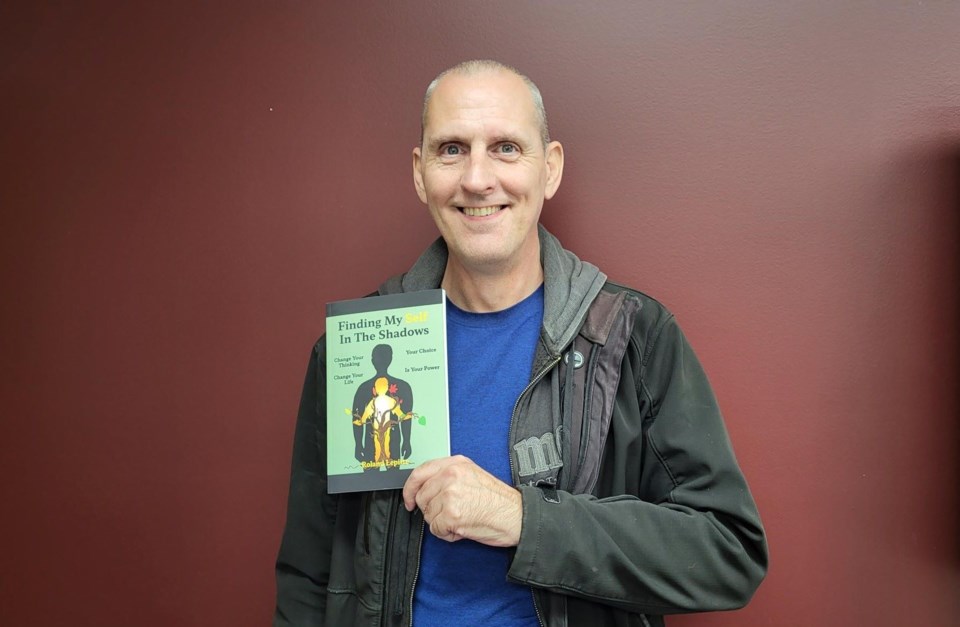Roland Lepitre was 16 years old, sitting on the back of his cousin’s motorbike, when they were hit by a truck.
On impact Lepitre was sent straight into the air and landed on his head.
When he went to the hospital he was told he had a concussion and spent three days recovering.
It wasn’t until he was in his early 30s that he realized he had a brain injury.
Up until the accident Lepitre was a calm individual, he recalled.
“After the accident I couldn’t figure out why I had a very short fuse and things would irritate me more,” Lepitre explained. “I was agitated a lot.”
Lepitre spoke to his mom about the time post-accident and she said she had noticed the difference in him but thought it was just typical teenage behaviour, he added.
His thoughts were often scattered and the more stress he felt the worse the symptoms got.
“When I’m having a great time in my life symptoms are minimal, but when stress is high there are times I can’t even walk,” Lepitre said. “I was really ambitious and I made it happen but then everything came crashing down,” Lepitre said. “And that’s ok.”
Lepitre was a high-functioning problem solver at work for years. Until he wasn’t.
When things got too bad in his 20s as a warehouse manager, Lepitre went to counselling.
“My counsellor asked me if I wanted to go into a group and I was like ‘nope, nope,’” Lepitre said.“I don’t want to be in a room with people. I’ve had so much social anxiety in my life. So he kept asking me about a group and I kept saying ‘nope, nope.’ And then I started going into his office in a wheelchair. That’s when the FND (functional neurologic disorder) hit me and I didn’t know what it was so I kept fighting it because that’s what you do – you fight. I kept fighting it and the more I would fight it the more it would fight back. And it would always win and it still does.”
Functional neurologic disorder (FND) refers to a neurological condition caused by changes in how brain networks work, rather than changes in the structure of the brain itself. FND symptoms may include seizure-like episodes, movement problems, problems with cognitive function, dizziness, speech difficulties, such as sudden onset of stuttering or trouble speaking, problems with vision or hearing, pain (including chronic migraine), extreme slowness and fatigue, numbness or inability to sense touch.
“So one day I went into my counsellor’s office and he asked me again if I wanted to go into a group and I said yes,” Lepitre said. “His head was turned away from me and he just about had whiplash because he had asked me so many times before and he looks at me and said ‘what’s changed your mind?’ and I said as I’m sitting in the wheelchair ‘well, what I’m doing isn’t working so I gotta do something different.’”
Lepitre went into group determined not to say anything.
“Yeah right,” Lepitre laughed. “I don’t like uncomfortable silence and I made a joke about coffee and everybody laughed then the counsellor came in and somebody started talking and I thought ‘holy craaaaaap! It’s like they were in my head!’ They were talking about the same things that I was going through and that’s when I knew I wasn’t alone. I like sharing that story because some people think it’s a weakness to get help. In this world if you’re going for help it is a sign of strength. You gotta take care of yourself.”
When Lepitre found his way to the Prince George Brain Injured Group, there was a list of symptoms on the bulletin board. Reading it, he discovered he could relate to almost every symptom.
“And that’s a good thing because that way I could relate to almost every single person that came through those doors,” Lepitre said.
He stopped going for a while but when he went back in after a couple of years he was told that he had helped a lot of people during his time there.
Living with a brain injury all these years has given Lepitre a well-earned perspective.
“Everything that’s happened to me, if I use it to help other people then it’s not for nothing,” Lepitre said. “And that’s kind of the mission that I’m on. Then there is purpose in all of it.”
To that end Lepitre has written a book called Finding My Self in the Shadows.
“Everybody has a story, everybody has stuff they have to go through and knowing you’re not the only one is kind of huge.” Lepitre said.
This is the first piece that Lepitre ever wrote.
You’re Not Broken
You’re not broken, you’re not stuck
You are more beautiful than you know
You’re not alone
You are right where you need to be right now
You are healing, you are growing
Be patient with yourself
Have compassion for all that you have been through
Find a way to love yourself back into life again
Take good care of yourself
Things are getting better slowly but surely
Pick up his book and meet Lepitre as he hosts a book signing at Books & Co., 1685 Third Ave., on Saturday, Oct. 19 from 10 a.m. to 2 p.m.
Lepitre is currently working on his second book about healing.



